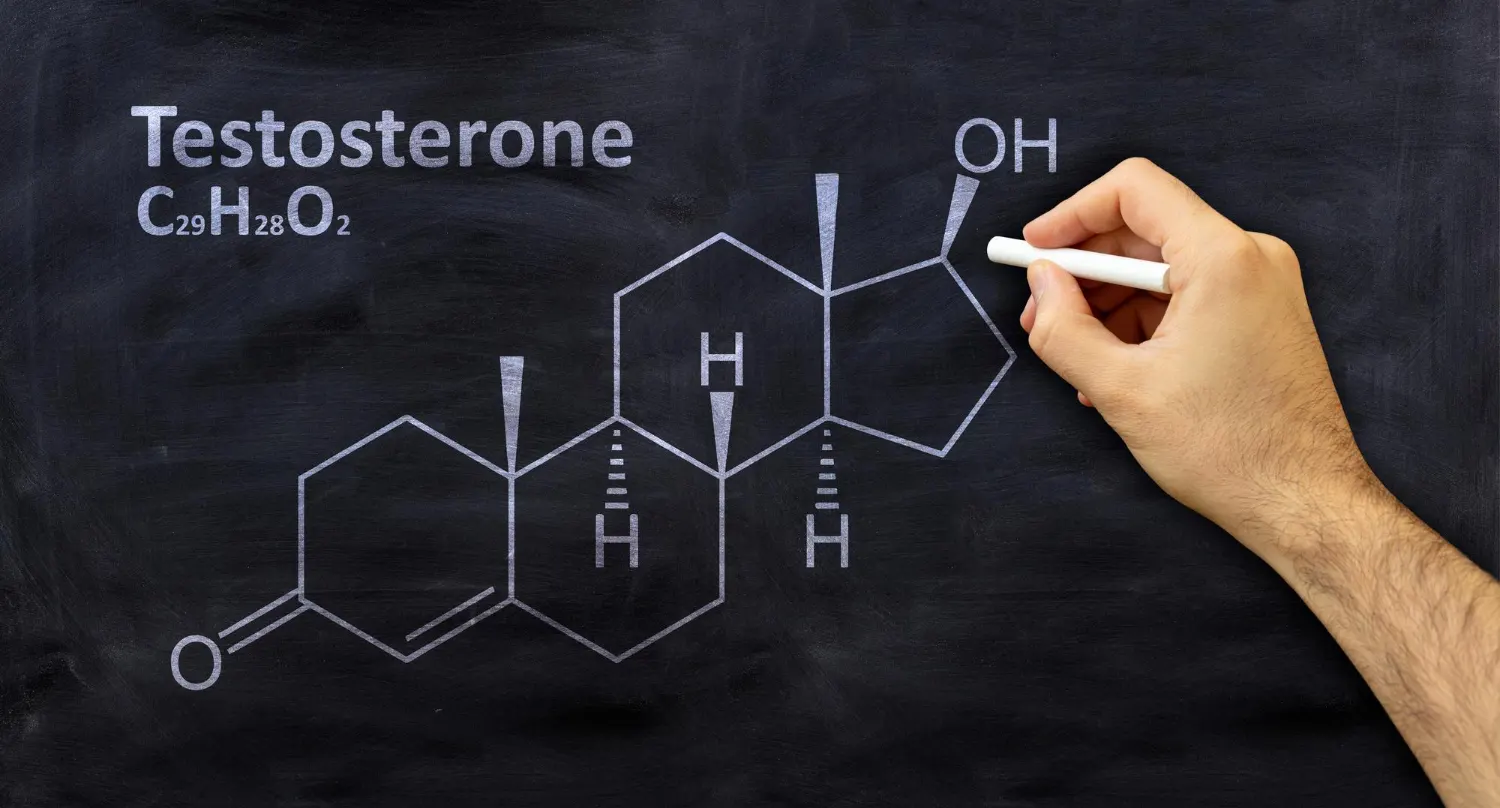Testosterone is more than just a male hormone; it is a vital player in maintaining overall health, from promoting muscle mass and bone density to influencing mood, energy levels, and sexual function. As men age, testosterone levels naturally decline, which can lead to a host of health issues, including reduced libido, fatigue, depression, and an increased risk of osteoporosis. While some factors like genetics and age are beyond our control, lifestyle changes offer a powerful tool in managing and supporting healthy testosterone levels.
This guide aims to provide an in-depth, evidence-based approach to supporting testosterone levels through key lifestyle changes. By focusing on dietary adjustments, exercise, sleep optimization, stress management, and other lifestyle modifications, individuals can maintain optimal hormone health, enhance their overall well-being, and reduce the risk of testosterone-related health issues.
In This Article
Understanding Testosterone
Testosterone is an essential androgen hormone produced primarily in the testes in men and the ovaries in women, though in much smaller amounts. It plays a pivotal role in the development of male reproductive tissues, including the prostate and testes, and is responsible for secondary sexual characteristics such as increased muscle mass, body hair, and deepening of the voice. Additionally, testosterone impacts mood, energy levels, and cognitive function, contributing to overall vitality.
As men age, testosterone levels naturally decline, with significant drops occurring around the age of 30. This decline can lead to symptoms like fatigue, mood swings, reduced libido, and decreased muscle mass. However, maintaining healthy testosterone levels is possible through a combination of diet, exercise, sleep, and stress management.
The Impact of Lifestyle on Testosterone Levels
The choices we make in our daily lives can significantly influence testosterone production. Many aspects of our lifestyle, including our diet, exercise habits, sleep patterns, and stress levels, are directly linked to testosterone production. Below, we explore how these factors play a crucial role in maintaining healthy testosterone levels.
Dietary Influences
A well-balanced diet is crucial for maintaining optimal testosterone levels. Research suggests that certain nutrients are essential for testosterone production, while others may inhibit it. Incorporating the right foods into your daily meals can support your hormone health.
Key Nutrients for Testosterone Production
- Healthy Fats: Testosterone is synthesized from cholesterol, which makes healthy fats a crucial component of testosterone production. Sources such as olive oil, avocado, and fatty fish like salmon and mackerel can help maintain adequate fat levels in the body.
- Zinc: Zinc is an essential mineral that plays a significant role in testosterone production. Foods rich in zinc, such as oysters, red meat, beans, and nuts, can help boost testosterone levels.
- Magnesium: This mineral has been shown to support testosterone production, particularly when levels of magnesium are sufficient. Leafy greens, nuts, seeds, and whole grains are excellent sources of magnesium.
- Vitamin D: Vitamin D is linked to increased testosterone levels. Sunlight exposure is the most natural way to boost your vitamin D levels, but foods like fortified milk, eggs, and fatty fish can help as well.
Foods That May Support Testosterone
- Eggs: Rich in protein and cholesterol, eggs are a natural source of testosterone-boosting nutrients.
- Fatty Fish: Fish like salmon and tuna are rich in omega-3 fatty acids, which support healthy hormone levels.
- Pomegranates: Studies suggest that pomegranates may help boost testosterone levels, thanks to their antioxidant properties.
- Leafy Greens: Magnesium-rich foods like spinach and kale can help support testosterone production.
Conversely, a diet high in processed foods, sugary snacks, and refined carbohydrates can lead to insulin resistance and obesity, both of which are associated with lower testosterone levels. Reducing intake of processed sugars and focusing on whole foods can improve overall hormone health.
Exercise and Physical Activity
Physical activity is one of the most effective ways to naturally boost testosterone levels. Research has shown that regular exercise, especially resistance training, can significantly elevate testosterone levels in the body. Different types of exercise can affect testosterone production in various ways.
Types of Exercise That Support Testosterone Production
| Exercise Type | Effect on Testosterone |
|---|---|
| Resistance Training (Weightlifting) | Increases testosterone levels by stimulating muscle growth. |
| High-Intensity Interval Training (HIIT) | Can increase testosterone more effectively than steady-state cardio. |
| Steady-State Cardio | Moderate cardio, like jogging, has less impact on testosterone. |
| Overtraining | Excessive exercise, particularly endurance training, can lower testosterone due to increased cortisol production. |
Resistance training, such as weightlifting, has been found to be particularly effective in boosting testosterone. High-Intensity Interval Training (HIIT), which involves short bursts of intense activity followed by rest, also helps stimulate testosterone production. On the other hand, excessive endurance exercise, like long-distance running, can increase cortisol, a stress hormone that suppresses testosterone levels.
Sleep and Testosterone
Sleep is essential for maintaining healthy testosterone levels. Research shows that men who get only 4-5 hours of sleep per night experience a significant reduction in testosterone levels, with some studies revealing a decline of up to 15% in testosterone levels after just one week of inadequate sleep.
To optimize testosterone production, aim for 7-9 hours of quality sleep per night. Establishing a regular sleep routine and creating a sleep-friendly environment—such as keeping the room cool, dark, and quiet—can help improve the quality of sleep.
Stress Management
Chronic stress is one of the most significant contributors to hormonal imbalances, particularly through the overproduction of cortisol. High cortisol levels can inhibit testosterone production, leading to a vicious cycle of stress and low hormone levels. Managing stress through relaxation techniques such as mindfulness meditation, yoga, or deep breathing exercises can help reduce cortisol levels and support testosterone health.
Engaging in regular stress-reducing activities, such as walking in nature, practicing meditation, or doing yoga, can help maintain a healthy balance of cortisol and testosterone.
Maintaining a Healthy Weight
Obesity is closely linked to low testosterone levels. Excess body fat, especially visceral fat (fat around the abdomen), can lead to an increase in estrogen production, which in turn can suppress testosterone levels. Losing excess weight through a combination of diet and exercise can help restore testosterone balance.
Research indicates that even a modest weight loss of 5-10% of body weight can result in significant improvements in testosterone levels. Focusing on a balanced diet rich in whole foods and engaging in regular physical activity can help achieve and maintain a healthy weight.
Additional Lifestyle Considerations
Alcohol and Tobacco Use
Excessive alcohol consumption and smoking are both detrimental to testosterone levels. Heavy drinking can impair liver function, which is essential for hormone regulation, while smoking has been shown to reduce testosterone production and affect male reproductive health. Reducing or eliminating alcohol and tobacco use can help improve overall hormone health.
Vitamin D and Sunlight Exposure
Vitamin D is essential for testosterone production, and deficiency in this vitamin has been linked to lower testosterone levels. Exposure to sunlight is the most natural way to boost vitamin D, but vitamin D-rich foods such as fatty fish, fortified dairy products, and egg yolks can also help.
Supplements and Natural Aids
Certain supplements, like ashwagandha, have been shown in studies to support testosterone production. However, it is important to consult with a healthcare provider before adding any supplements to your routine to ensure they are safe and appropriate for your individual needs.
Conclusion
Supporting healthy testosterone levels is crucial for overall health and well-being, and lifestyle modifications offer a practical and effective way to achieve this. By focusing on a nutrient-rich diet, regular physical activity, adequate sleep, stress management, and maintaining a healthy weight, individuals can optimize their testosterone levels and reduce the risk of related health issues. Additionally, avoiding excessive alcohol consumption, quitting smoking, ensuring adequate vitamin D intake, and considering supplements can further enhance testosterone production.
With these lifestyle changes, individuals can take proactive steps toward maintaining optimal testosterone levels and improving their overall quality of life.
References
- Mi Express Care. (2025, March 19). Natural Ways to Increase Testosterone for Better Health. Retrieved from https://www.miexpresscare.com/blog/natural-ways-to-increase-testosterone-for-better-health
- The Institute for Functional Medicine. (2025, January 31). Testosterone Deficiency: Lifestyle-Based Approaches. Retrieved from https://www.ifm.org/articles/testosterone-deficiency-and-treatments
- Uro Phoenix. (2024, September 27). Lifestyle Changes to Boost Your Testosterone Levels Naturally. Retrieved from https://www.urophoenix.com/2024/09/27/lifestyle-changes-to-boost-your-testosterone-levels-naturally/
- Harvard Health Publishing. (2024, August 13). Lifestyle strategies to help prevent natural age-related decline in testosterone. Retrieved from https://www.health.harvard.edu/mens-health/lifestyle-strategies-to-help-prevent-natural-age-related-decline-in-testosterone
- PMC. (2015, November 27). Increased physical activity has a greater effect than reduced energy intake on improving serum testosterone levels. Retrieved from https://pmc.ncbi.nlm.nih.gov/articles/PMC4706091/










0 Comments